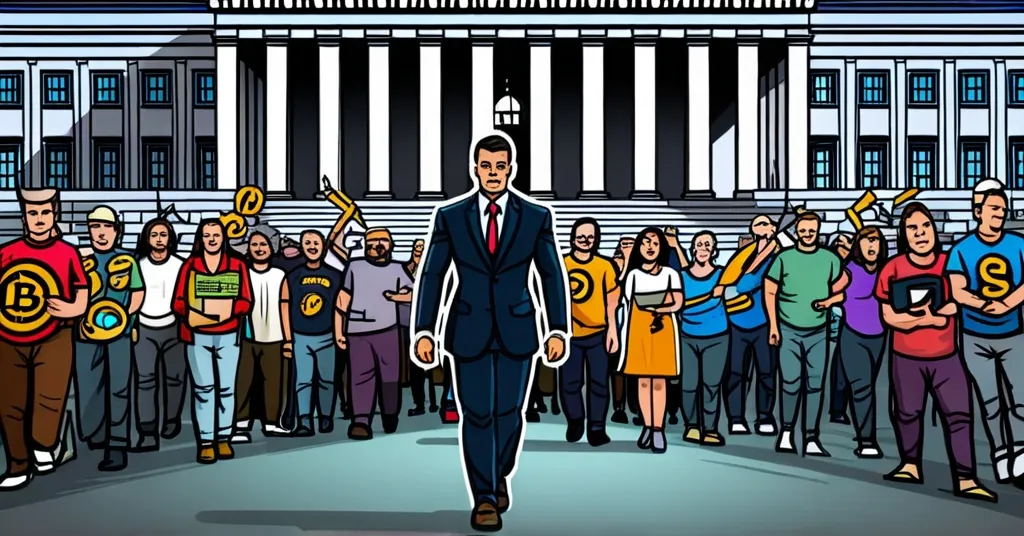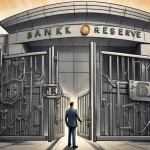John Deaton to Lead Probe into Operation Choke Point 2.0: A Fight for Crypto Freedom

Pro-Crypto Lawyer John Deaton Volunteers to Lead Federal Probe into Operation Choke Point 2.0
Pro-crypto lawyer John Deaton has stepped forward to head a federal investigation into Operation Choke Point 2.0, a move aimed at exposing possible government overreach against the cryptocurrency industry under a potential Trump administration. The focus will be on multiagency coordination and corruption that may be stifling financial innovation.
- John Deaton to spearhead investigation into Operation Choke Point 2.0
- Custodia Bank’s legal battle with Federal Reserve seen as pivotal
- FDIC’s “pause letters” targeting crypto activities revealed
- Coinbase’s Paul Grewal provides evidence of regulatory suppression
John Deaton isn’t just another lawyer; he’s a champion for the crypto world. He’s stepping up to lead an investigation into what he believes is a shadowy operation aimed at de-banking crypto firms. No salary? No problem for Deaton, who’s all about uncovering the truth. But this isn’t just about crypto; it’s about the bigger picture. As Deaton puts it:
At their core, Custodia Bank’s fight and Choke Point 2.0, go beyond digital assets, banking charters or blockchain. It’s about whether unelected bureaucrats can arbitrarily deny access to essential financial infrastructure, effectively picking winners and losers in the marketplace.
Operation Choke Point 2.0, for those new to the crypto world, is the alleged effort by U.S. government agencies, including the FDIC, to restrict or “de-bank” cryptocurrency firms. This means limiting their access to vital financial services, essentially stifling innovation and growth.
Take Custodia Bank, for instance. They’re in a legal tussle with the Federal Reserve, which classified them as a Tier 3 institution (the strictest review category) and denied them a master account (a bank’s key to accessing Federal Reserve services). The Wyoming District Court upheld this decision, stating that the Federal Reserve Bank of Kansas City was not required by law to grant Custodia a master account, despite their legal eligibility. This case isn’t just about crypto; it’s about access to the financial playing field.
Adding more fuel to the fire, Coinbase’s chief legal officer, Paul Grewal, has thrown down some serious evidence. Through Freedom of Information Act requests, Grewal obtained FDIC documents revealing “pause letters” sent to banks, aiming to restrict crypto activities. Here’s what Grewal had to say:
We finally got the unredacted OCP 2.0 letters from [the FDIC]. It took a court order but you can now read them for yourself… They show a coordinated effort to stop a wide variety of crypto activity – everything from basic BTC transactions to more complex offerings.
This isn’t just a minor hiccup; it’s a full-blown assault on the crypto industry. Grewal isn’t messing around and suggests that the new Congress should kick off some hearings to get to the bottom of this. It’s a call to arms for the crypto community, demanding fairness, transparency, and the right to innovate without being choked out by regulatory suppression.
So, what’s at stake here? It’s not just about keeping your Bitcoin safe; it’s about the very principles of freedom, decentralization, and the right to financial innovation. John Deaton’s volunteer investigation, Custodia Bank’s legal battle, and the evidence presented by Paul Grewal are all part of a larger narrative about the ongoing struggle between the crypto world and traditional financial regulators.
As enthusiasts of bitcoin, blockchain, and decentralized technologies, we must stay vigilant. We champion the potential of these technologies to disrupt the status quo and foster effective accelerationism (e/acc), but we can’t ignore the regulatory challenges. The future of finance hangs in the balance, and these stories remind us of the stakes involved.
Imagine if you’re just trying to HODL the line, and suddenly your bank account is frozen because you made a BTC transaction. That’s the kind of world Operation Choke Point 2.0 could create if left unchecked. But with warriors like Deaton and Grewal on the case, there’s hope that we can take this fight to the moon!
Here are some key takeaways:
- What is Operation Choke Point 2.0?
Operation Choke Point 2.0 refers to alleged efforts by the U.S. government, including the FDIC, to restrict or “de-bank” cryptocurrency firms through coordinated actions that limit their access to financial services.
- Why is John Deaton volunteering to investigate Operation Choke Point 2.0?
John Deaton aims to uncover potential multiagency coordination and corruption in these government efforts, believing they unfairly target the crypto industry.
- What is the significance of Custodia Bank’s legal battle?
Custodia Bank’s case against the Federal Reserve is seen as crucial because it challenges the government’s ability to arbitrarily deny access to essential financial infrastructure, which has broader implications for free market principles and innovation.
- What evidence has Coinbase’s Paul Grewal presented regarding Operation Choke Point 2.0?
Paul Grewal revealed FDIC documents that show a coordinated effort to restrict various crypto activities, including basic Bitcoin transactions, obtained through Freedom of Information Act requests.
- What actions does Paul Grewal suggest should be taken by Congress?
Paul Grewal suggests that the new Congress should launch hearings to investigate the FDIC’s actions against the crypto industry.



